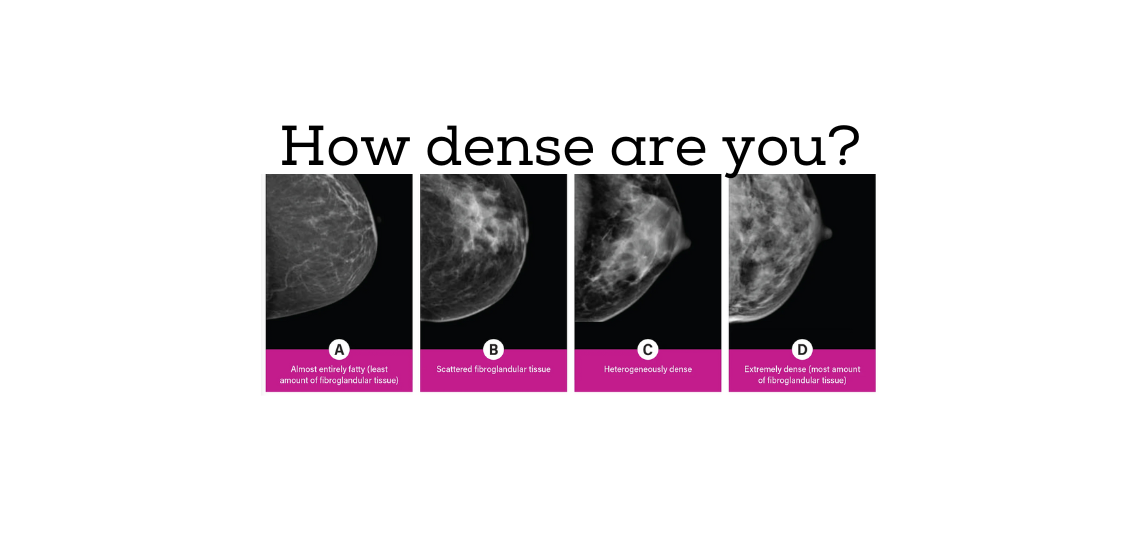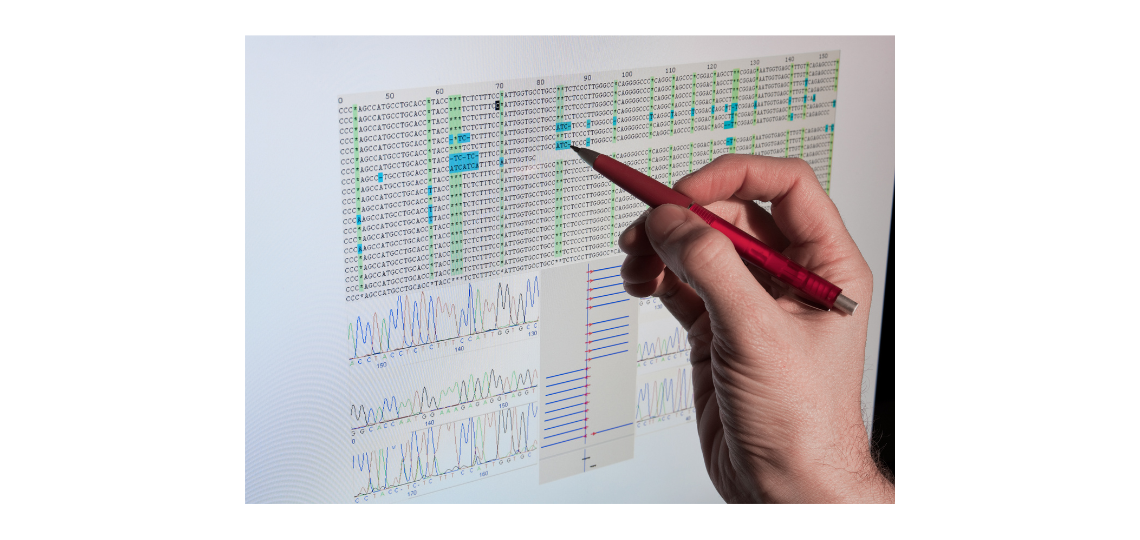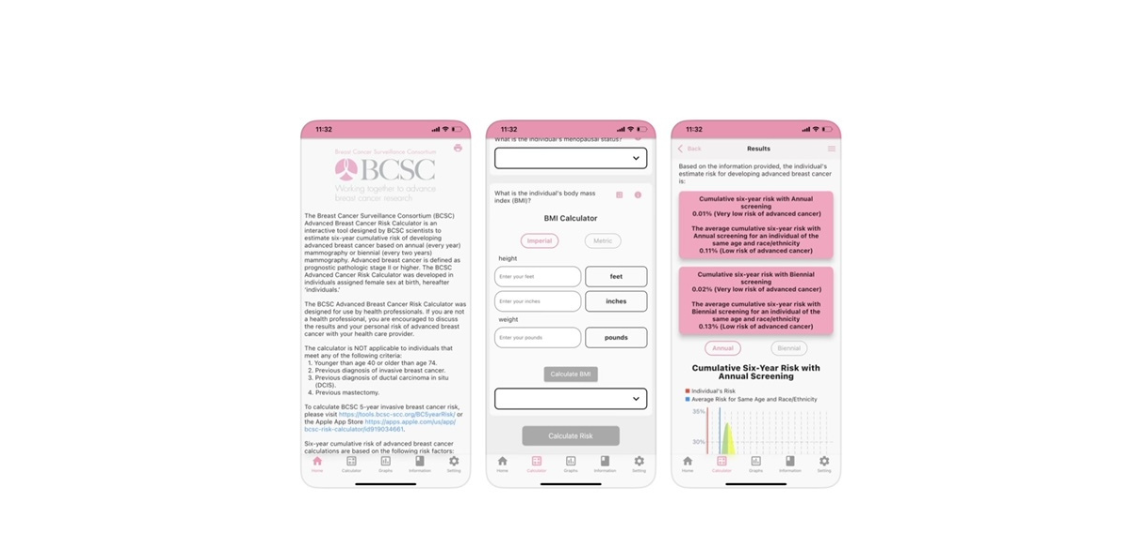The Little-Discussed Breast Cancer Risk Factor
By Patient, Policy, Breast Cancer Advocate & WISDOM Ambassador, Diane Heditsian
The week before Breast Cancer Awareness Month, two well-respected former national morning talk show “sweetheart hosts”, Katie Couric (Today Show) and Joan Lunden (Good Morning America), who have experienced breast cancer themselves, publicly began raising awareness that dense breasts are a little-discussed risk factor for breast cancer. During one of the interviews, the journalist could not believe that this fact was known by science but had not spread like wildfire through the population of American women. So, we’re taking this opportunity to showcase our earlier blog article about breast density (read it here!) and continue the conversation here.
Breast density is reported as part of everyone’s mammogram report. By law, all mammography reports must include the reporting of density using categories labeled A-D.
A. “Fatty”- Breasts are almost entirely fatty
B. “Scattered” – Few areas of dense tissue are scattered throughout the breast
C. “Heterogeneously Dense”- Breasts are evenly dense throughout
D. “Extremely Dense”- Breasts are extremely dense
Currently, thirty-eight states and the District of Columbia also require a letter be sent to women telling them specifically about whether they have dense breast tissue. Usually that means a combination of C and D. Almost 50% of US women are in that category. Only about 10% of women have very dense breast tissue.
Breast density tends to reduce with age however a recent study found that about half of women age 40 to 64 have dense breasts, and 30-32% of women in their 60 and 70s still have dense breasts. If you take postmenopausal hormone replacement therapy your breast tissue can become denser.
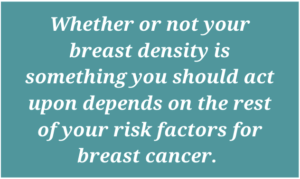
Women with the highest breast density, relative to the lowest have about a four times higher risk of getting breast cancer. Whether or not that is something you should act upon depends on the rest of your risk factors for breast cancer.
Below is a chart of some of the key risk factors for breast cancer and their relative risk. (Relative risk or risk ratio (RR) that you see on the right side of the chart is the likelihood of a breast cancer occurring in people who have a particular risk factor compared to those who do not have that particular risk factor.
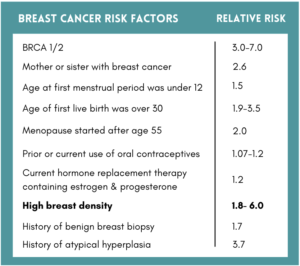
So, what should women do about their dense breast tissue? Find your breast density category on your mammogram report, and if you have dense breasts, speak with your healthcare provider about your risk for breast cancer and considerations for additional screening. If you are in the WISDOM Study please make sure to send us your most recent mammogram report so that we can factor your breast density score into your personal risk assessment (if we don’t have your report, we will factor in an “estimated score” but it’s more accurate to have your actual density rating). Know that ultrasound is not a good tool to be used for screening. There is increasing evidence that it can be useful as an adjunct to mammography in the evaluation of women with dense breasts but it is not recommended as a universal supplemental screening test for women with average risk (NCCN Guidelines version 4.2022). Several studies indicate that ultrasound may not be beneficial for people in low to average risk categories in part due to the increased recall and benign breast biopsy rates. Rather, ultrasound is recommended for use as a diagnostic follow up if an abnormality is found on a mammogram, to see if it can be identified and biopsied, if that’s necessary.
Our founder, Dr. Esserman, recommends that if a woman is at high risk for breast cancer and has dense breasts, she should get alternating MRIs and mammograms (ie., one in the first six months of the year and the other in the second six months of the year). And, she should also consider doing something to lower her risk. There are a number of opportunities to do so, among the options are taking risk-reducing medications and making lifestyle changes.
The good news is that today, during Breast Cancer Awareness Month in 2022, modern medicine can tell us a lot about who is at a higher risk for breast cancer and who has very low risk. We are conducting the WISDOM Study to help women understand their comprehensive risk for breast cancer and to organize screening and prevention according to an individual woman’s risk. WISDOM believes that this approach will 1) do a better job of finding a breast cancer early when it is more treatable, 2) reduce unnecessary screening call backs and biopsies, and 3) increase the opportunities to use risk reducing methods which are currently available and always improving. Obviously, the best approach is to avoid getting breast cancer altogether, whenever possible.
There is no better way to become educated about your personal breast cancer risk, including dense breasts, than to join the WISDOM Study. It’s completely free of cost, conveniently online and takes a small amount of time. It’s a win-win-win. You learn more about your own risk. If you are at high risk, you learn whether advanced imaging, risk-reducing medications and/or lifestyle changes would benefit you. And, our new online Breast Health Decisions tool, accessible through the WISDOM private portal, is currently available to some women in the study and provides users with customized health education about individual breast cancer risk over the lifespan and risk-reducing opportunities. You help American women for generations to come. You help to advance medical science and women’s health.
In 2022, Precision Medicine enables healthcare to be personalized, predictive, preventive and participatory. Shouldn’t breast cancer screening and prevention join the other areas of medicine that are benefiting from this advance? And shouldn’t we all be treated as individuals in our health system? That’s what the WISDOM Study is all about.
We want to hear your voice as part of the conversation. Please send us your experience and thoughts around this topic. Email us at wisdomcommunity@ucsf.edu!
